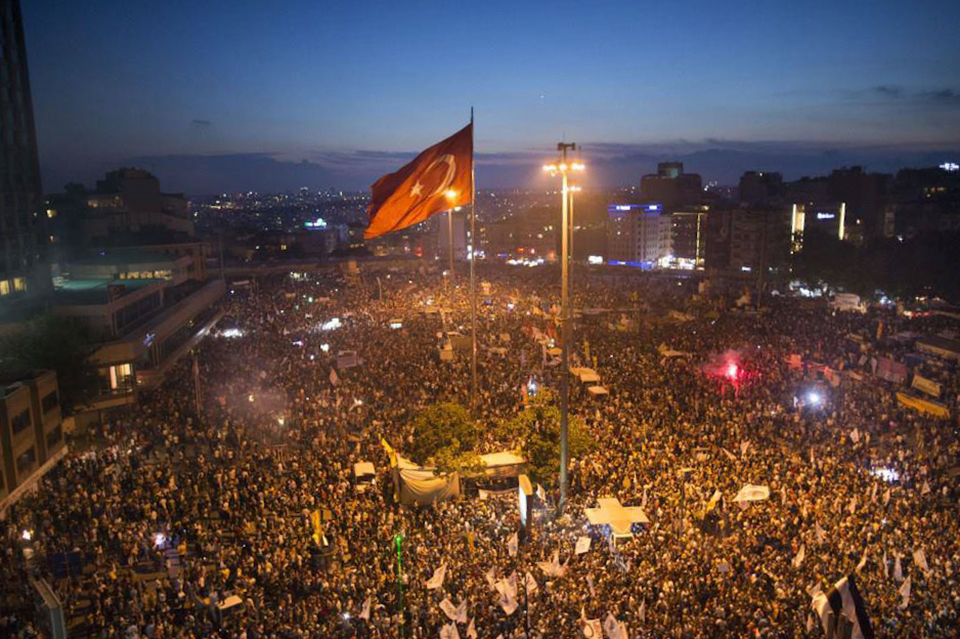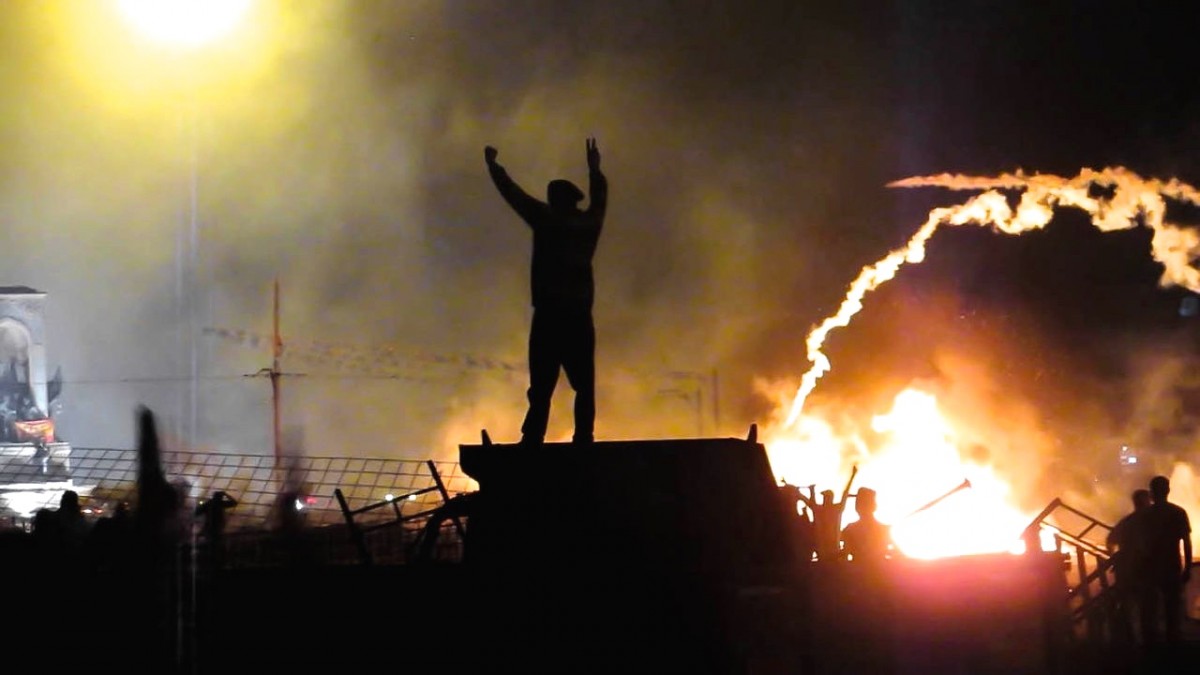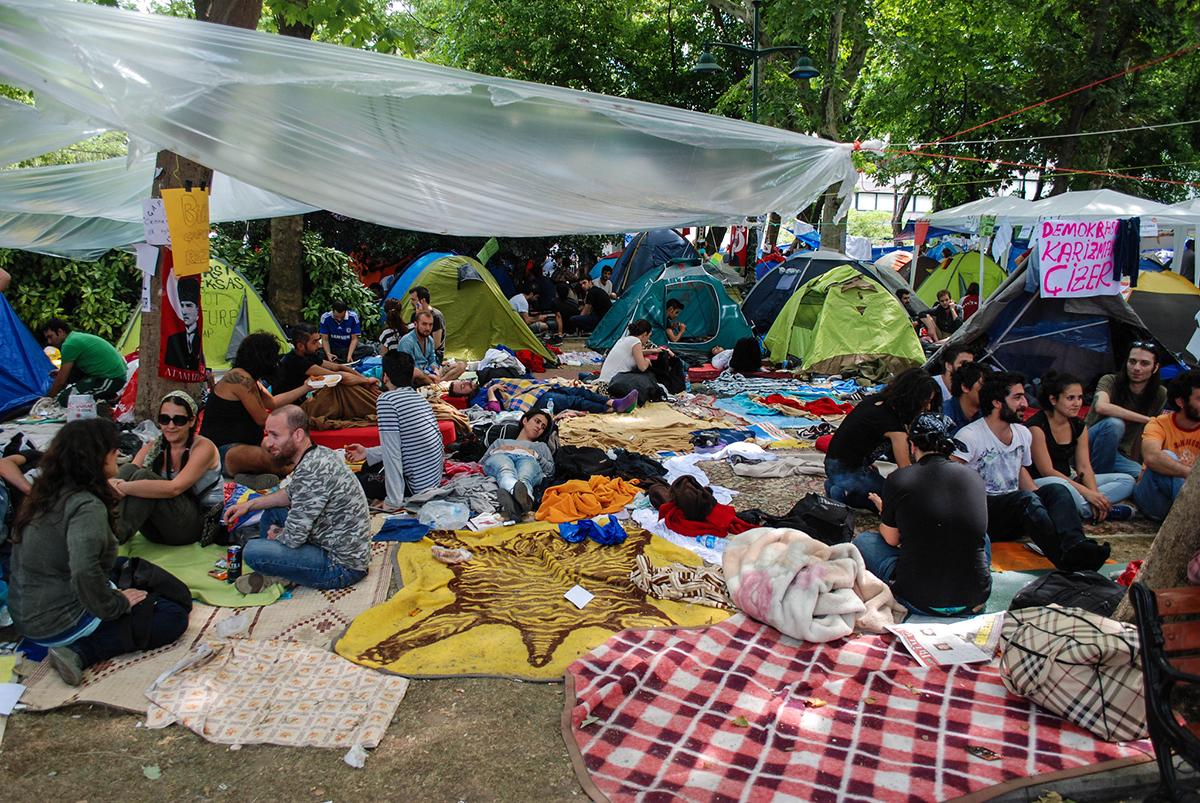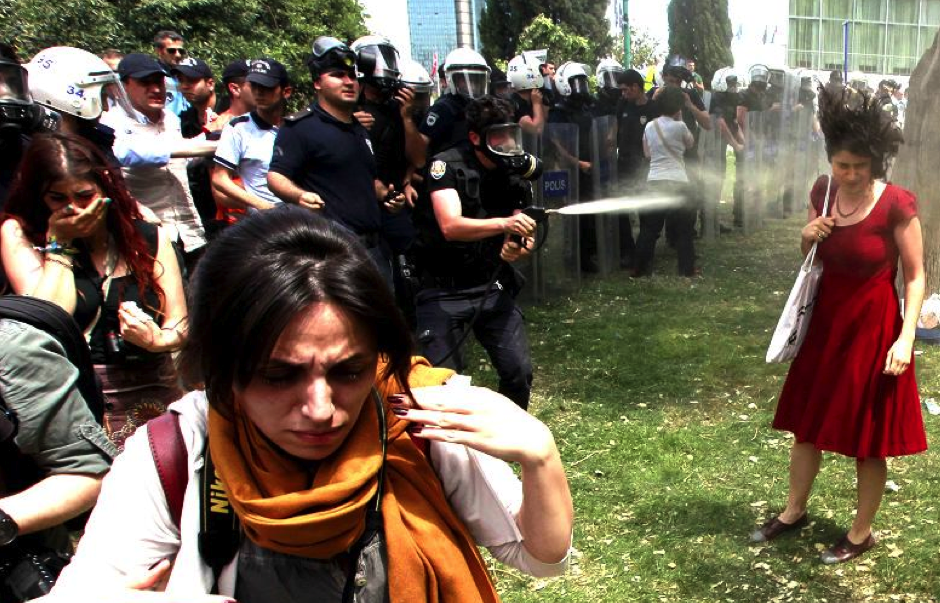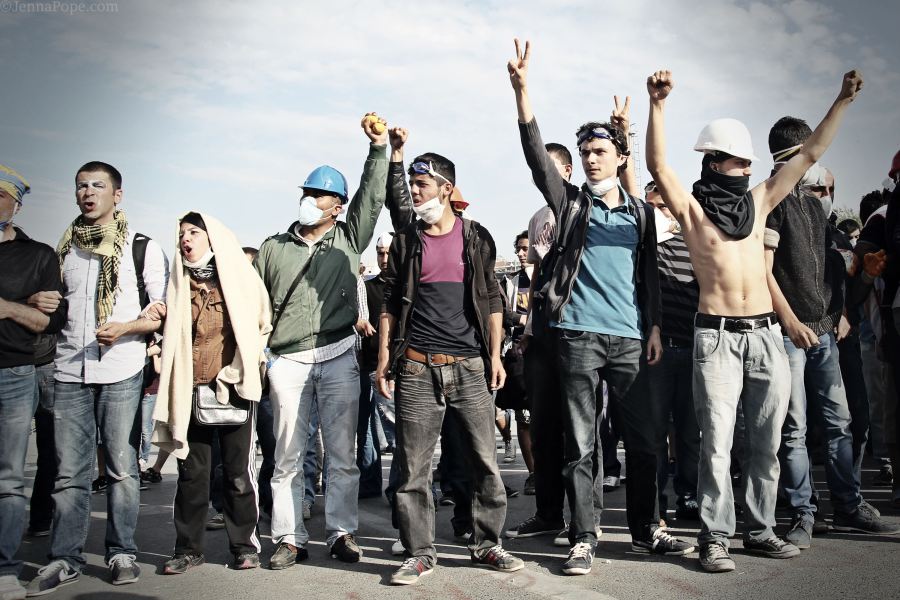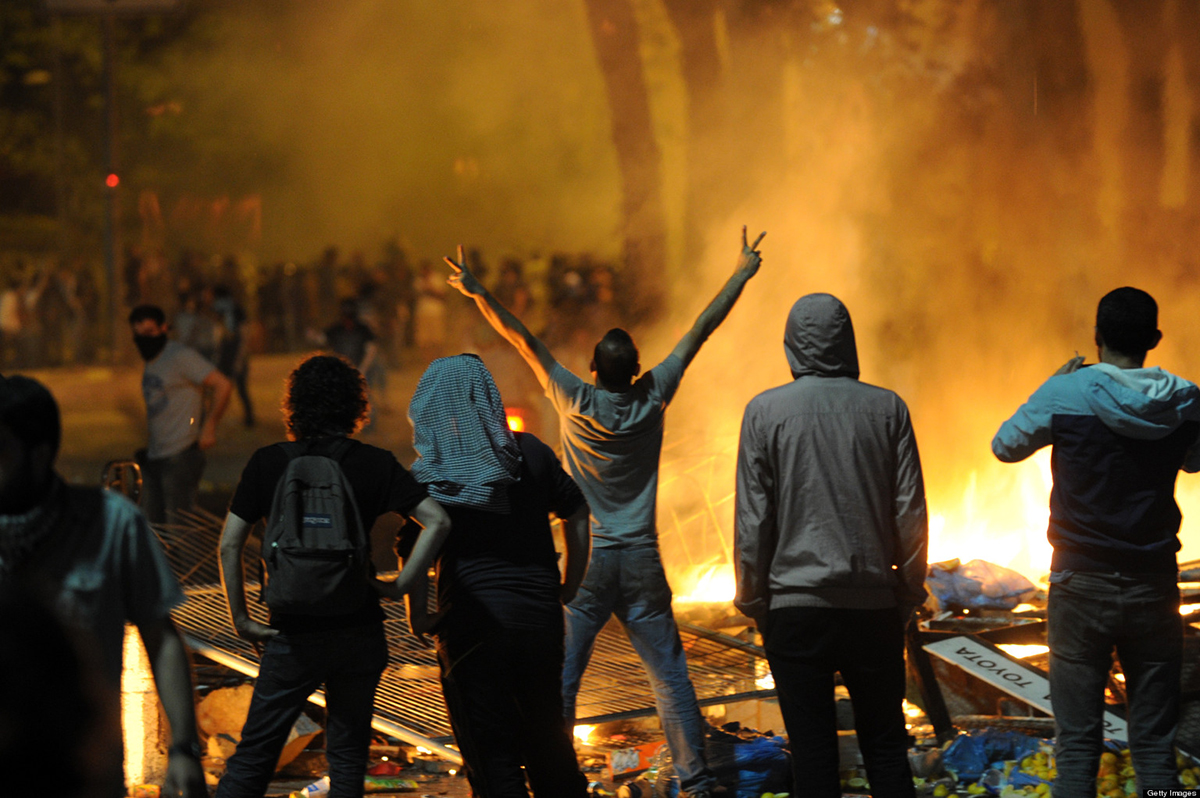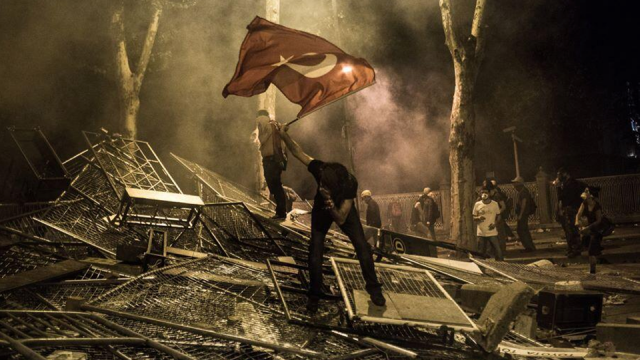
ISTANBUL – The scene opens in a dark room. Dour men in dark suits sit around a conference table with an open bottle of scotch as a bearded English-speaking foreigner delivers a lecture, boasting that for the past decade governments in Eastern Europe and North Africa have been brought to heel.
“Now Turkey is out of control,” the long-haired man says in an American accent. “Turkey isn’t like Arab countries. With all our efforts we’ve come this far but the Turkish government still remains strong.” A video montage projects images of riot police in street clashes during the Gezi Park uprising.
“Gentlemen, it is our duty to eliminate any threat to our civilization,” the foreigner continues, Turkish subtitles translating his words. “Right now that threat is the prime minister. Who’s with me in the operation?”
The camera pans to a projected image of a handsome silver-haired man with a striking resemblance to Turkish President Recep Tayyip Erdogan. The seated men raise their hands in ascent – a very democratic method for plotting a political assassination. The next scene shows the fictitious prime minister washing himself in ablution after prayers at a mosque. He’s then scene through a rifle scope.
Fade to black. The report of a rifle shot rings out. Roll credits.
That’s the exciting conclusion of Kod Adi K.O.Z., a Turkish blockbuster film released in February that ties Gezi Park, Turkey's 2013 corruption scandal and the government’s open war with the Gülenist movement as a Western-organized conspiracy to deny Turkey’s rightful place as a global power.
“The clearest aim of these kinds of movies is to discredit the mass mobilizations and demonstrations, such as Gezi resistance, or any kind of worker-led strike or resistance,” Firat Yucel, editor of the Turkish film magazine Altyazi, told Occupy.com. “Either by claiming that there's a conspiracy behind the movement or by criminalizing the people or the political organizations involved in the movement.”
The actor playing the nameless cabal's lead character who orders the assassination of Turkey’s leader, 46-year-old Jason Jones, an American living in Istanbul, says many aspects of the production were surreal.
“We knew after reading the script it was definitely pro-government,” Jones said, speaking this week in Istanbul. “Every modern conspiracy that’s happened was covered.”
Plots and conspiracy theories are deeply rooted in the culture in this part of the world. Intrigue and backstabbing were a major part of political life during Ottoman times and the founding of the Turkish republic did little to change this national pastime.
Ufuk Arica, a freelance scriptwriter living in Istanbul, says films and television series often parallel populist government rhetoric because they’re more likely to appeal to the mainstream. “Money always follows the popular issues,” Arica said.
“That’s why they made a serial called Magnificent Century. This show wasn’t created by government men trying to promote a neo-Ottoman ideal. First the government promoted neo-Ottoman themes in the country, and then the money followed.”
The neo-Ottoman dream has already paid dividends in other series including Valley of the Wolves, a controversial action series with a number of spinoffs, one of which was set in Iraq where American actor Gary Busey played a Jewish doctor that peddled the organs of Iraqi children to wealthy clients in Tel Aviv and New York. The 2006 film garnered widespread outrage in Europe and the United States, where it was lampooned by the Daily Show’s John Stewart.
But for all the hype and promotion around films like Kod Adi K.O.Z., there’s evidence that this time around it isn’t working.The film has been a box office flop. The most popular Turkish film site panned the movie with more than 600 users – about 68 percent – giving no stars, and less than a quarter of respondents being charitable enough as to give the film a single star.
By contrast, this season’s hit comedy Carsi Pazar is doing more favorably. The film tells the story of greedy developers intent on razing an historic hamam to build a shopping mall. There are already echoes of the Gezi Park fight on Taksim Square – erasing a popular meeting place for private development – and in this film foreigners are portrayed as well-heeled tourists who help save the bathhouse.
American actor Jason Jones also had a bit part to play in Carsi Pazar – as a spellbound foreigner visiting the historic building for the first time. “I play a global conspiracy leader in one film and next I play a hapless tourist,” Jones said.
That production was much different, he said, with actors bonding with the international cast over food and strong drink. “Several actors came out and drank raki and hung out with us,” he added. Carsi Pazar is doing better at the box office as well and has gained more favorable reviews. This may a sign that the Turkish public is no longer swallowing the global conspiracy narrative being peddled by the Turkish government.
Even so, audiences of Turkish series are increasingly being treated to a front-row seat of the government’s paranoia – in much the way Americans were spoon-fed the narrative that torturing "terrorism" suspects kept them safe.
3 WAYS TO SHOW YOUR SUPPORT
- Log in to post comments

